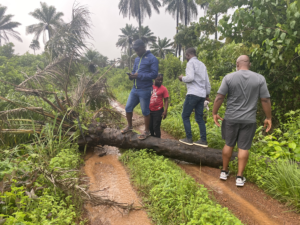
Tree blocking the muddy road to Outreach Clinic
Each time I visit the Tikonko Chiefdom, where RHCI does its life-saving work, I am overwhelmed and immensely impressed by the impact we have on thousands of lives, with interventions costing at most a mere $50 per patient. Sierra Leone, one of the poorest countries in the world, struggles with high rates of maternal and child deaths due to illnesses, lack of skilled healthcare, and food insecurity. The idea of living a healthy life often seems impossible. Yet, RHCI has simple solutions that work, and I am immensely grateful to witness them first-hand. With over 10 years of service, our mission is to support and strengthen existing healthcare systems for expectant women and children.
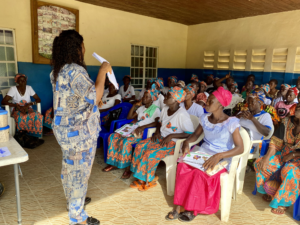
Umu Shour, Nutritionist, training CHWs
In one memorable scene, I found myself in a room filled with over 35 Community Health Workers (CHWs) from various surrounding villages. They were eagerly learning from RHCI’s Nutritionist, Umu Shour. The room buzzed with energy as they learned through song, dance, skits, and dramas. Umu led the important trainings, and the CHWs listened intently. These trainings build on their existing healthcare knowledge in communities where health centers do not exist. The CHWs expressed deep gratitude to RHCI for respecting and utilizing their skills. Without them, many patients might never reach the clinic or hospital and could face lifelong complications or death.
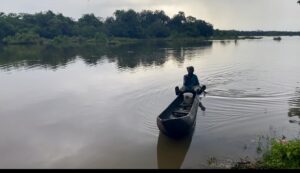
Canoe ride to distant village
On another day, I was starkly reminded of the lack of basic healthcare that thousands of mothers and children face. Board member Lamin Foray and I took local transport through pouring rain, crossing the river by canoe, riding motorbikes on muddy paths, and walking on foot. Despite the adventurous nature of our journey, it was a harsh reminder that most patients endure these treacherous routes, using every spare penny (or Leone) they have to reach the nearest health facility. As we floated across the river in a canoe carved from a giant tree trunk or bounced along muddy paths on a motorbike, I imagined what it would be like to undertake this journey while pregnant and in labor or holding a severely ill child.
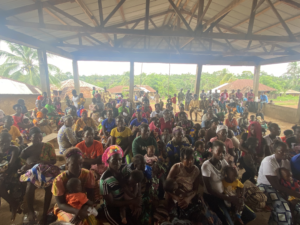
Outreach clinic
Fortunately, women and children in these communities no longer need to face such treacherous journeys. RHCI has established 16 outreach clinics, using trucks and motorbikes to transport nursing staff and medication to various villages each month. During this visit, our staff cared for about 200 patients, providing vaccinations, immunizations, treatments, antenatal care, family planning, malnutrition interventions, and education. The CHWs were there, assisting every patient and keeping track of those who needed follow-up and can use RHCI’s truck as an ambulance when our nursing staff returned home.
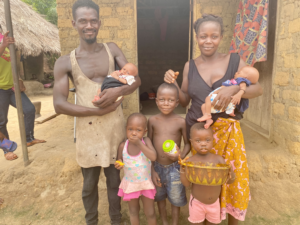
Nyawo with her family
The most memorable moment of my trip was joining the nursing staff on a Newborn Home Visit. Last year, RHCI identified infant deaths occurred within the first few weeks after birth. In response, we created a holistic program that supports women with antenatal care, medical monitoring at our Birth Waiting Homes, and now Newborn Home Visits for at-risk patients. After an hour-long trip across rocky paths, we arrived in the village of Kortumhan. There, Nyawo awaited us, holding her two tiny twin babies beside her home. She is familiar with RHCI as she stayed at our Birth Waiting Home during her pregnancies, and this was nurse Janet’s third visit. We entered her house, made of mud clay with a straw ceiling. The twin girls, just two weeks old, were carefully examined. Joanet provided education on maintaining a clean environment, the importance of breastfeeding, and checked Nyawo’s blood pressure. Although these were Nyawo’s fourth and fifth children, she learned crucial infant care tips that could save her twins’ lives. Nyawo relies on RHCI’s outreach clinic for herself and her five children and will continue to do so in the future. RHCI has become a vital part of Nyawo’s life and that of her children. Without RHCI, she would be left without healthcare for her family.
Sharing Nyawo’s story, along with the stories of the thousands of patients we serve at outreach clinics, and highlighting the important role of empowering CHWs, I hope you feel as compelled as I do to support this mission. These are simple, low-cost interventions that make a world of difference to the lives of mothers and children who need it the most. Thank you for your support of this work, and please remember how much of an impact you are making with each donation you contribute!
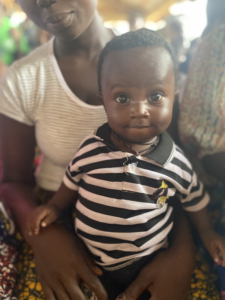
Baby receiving care at Outreach Clinic
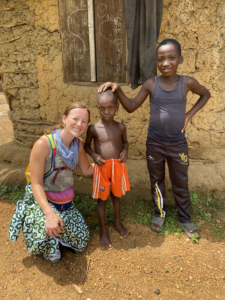
Umoro and friend in the village of Julian
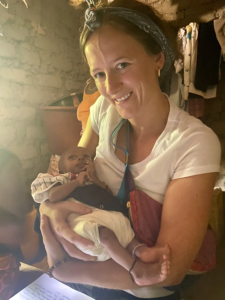
Twin baby Doris
